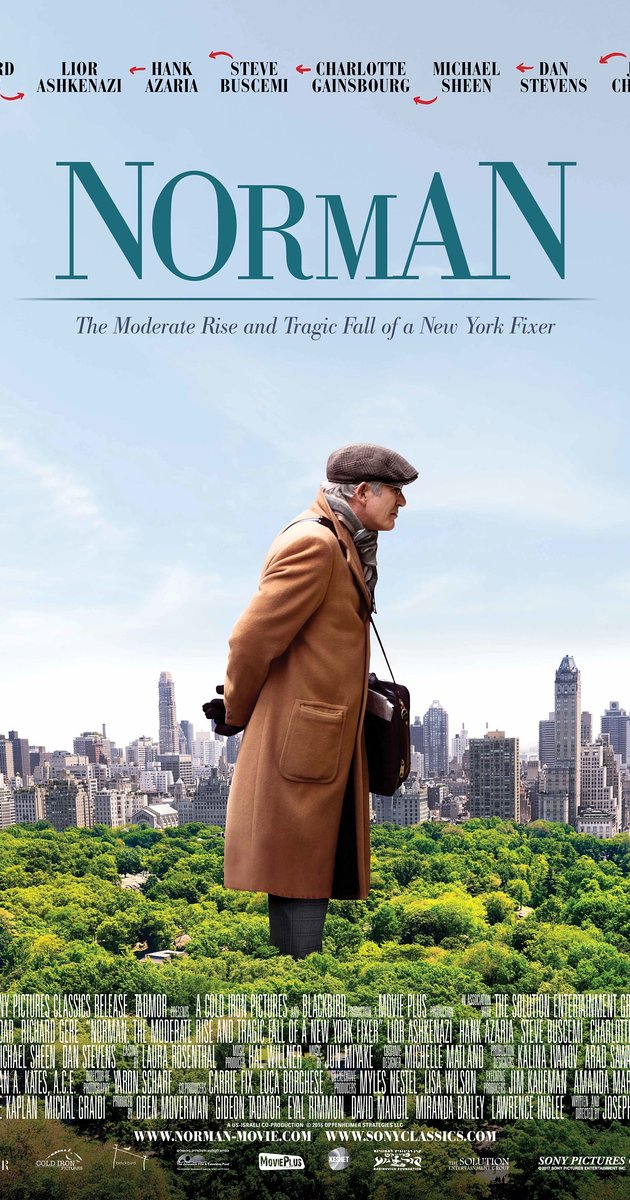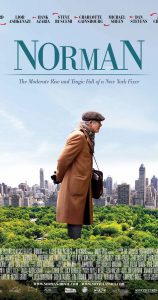Interview: Barry Watson on “Date My Dad”
Posted on May 18, 2017 at 9:06 am
It was a lot of fun to talk to actor Barry Watson about his new television series, “Date My Dad,” a one-hour dramedy on the UP channel about a widower with three daughters — and a mother-in-law played by Raquel Welch! The show is something of a real-life family affair, as Watson’s wife, Natasha Gregson Wagner, and his father-in-law, Robert Wagner (“Hart to Hart,” “It Takes a Thief”) have guest-starred on the series, which premieres June 2, 2017.
Tell me about the character you play.
Well my character is Ricky Cooper, and Ricky is a widower with three daughters. We start the show off on Ricky’s fortieth birthday where it’s been three and a half years since his wife Isabella passed away and his daughters have decided to get him out in the dating world again because he’s sort of been in a groove just kind of focused on raising his girls. And on top of that his mother-in-law who has been helping out, who’s played by Raquel Welch, decided that she’s moving out of the house so, Ricky thinks his life is just turned upside down. It is obviously a challenge for him that can be messy at times and it is a challenge for me as well as an actor because I’ve got three kids myself and I’ve gone through a period of time where I was a single father so I can bring some of that to the role as well.
I think having a daughter really prepared me in a different way to play the father of three daughters because I don’t think that I would be able to bring the depth that I brought to the character without having my daughter come into this world. Ricky’s a very simple guy, he doesn’t really put a lot of effort into I think what his wardrobe is, he wears a lot of flannels, a lot of jeans, a lot of boots and that become a storyline with his daughters because they’re always telling me I wear dad jeans and I tuck my shirt in too much and it should be untucked and all that. It’s like my real life. My daughter is only five, but she tells me when she thinks my clothes aren’t right.
Ricky is not just a dad in a family of girls but he comes from kind of a macho environment. He was a professional athlete.
This guy was a professional baseball player so he went from city to city and hung out with his ballplayer friends and his teammates, but the one thing that he did have in his life was his love of his wife Isabella who he had been with since high school. So it wasn’t like he was out playing the field like you know you hear all these baseball players in sports athletes do. I think Ricky is a pretty dedicated guy to his wife and his three daughters.
So, basically, he has not dated for more than 20 years.
Yes, in over 20 years, his whole adult life he was with one person and so he doesn’t even know what that dating world is like or even how to do it. So, he needs the help of his daughters, his mother-in-law, and his work-family. They are there to kind of push him along and kind of get him out of this groove he has been in.
But it’s not a sitcom, right?
This is a single camera one hour dramedy. It’s not a drama, but I think most comedy comes from dramatic situations, just like in real life. My nine-year-old son said a few years ago, “I just wish that there is something that you could work on that I could watch.” In households nowadays if they have two TVs, one TV has some sort of Nickelodeon or Disney thing on and the parents are watching some procedural show that’s basically the same show that is on the other networks and nobody is really sharing that time together and I think it’s great that this show came about because it really has a little bit of everything for everybody.
What was it like to work with your famous father-in-law, Robert Wagner?
He’s my father-in-law now so I’ve known him for quite a while and so we have a relationship that’s obviously our personal relationship but it was just great to kind of see how he goes about his work and to share the screen time with him. He’s a pro, and there is no drama with him. He prepares for his work and he shows up on time and he is a true professional. And it was just on honor to be able to work with him.
What kind of role does he have?
He plays a possible love interest for Raquel Welch’s character. So, if we end up getting a season two then hopefully he’ll get to come and do more episodes.
And what kind of role did Natasha play?
Natasha plays this character, Page, who is kind of the first woman that Ricky’s taken any sort of interest in since Isabella passed away. I mean he has had some dates before but it’s always like the dates set up by his brother, Bill or somebody from the gym or his daughters or his mother-in-law and so it was kind of the first woman he’s really taken more serious interest in I think.
Ricky must have some challenges both in dating and in raising his daughters when it comes to technology.
We do, we touch on that quite a bit. We actually have really nice episode that deals with cyber bullying, which is something I obviously worry about in my own life with my own kids happening at some point. They’re too young now but eventually they are going to be into that whole social media world. So it was nice to be able to deal with that topic. That’s what’s so great about the show, being able to tackle these different issues that are happening with kids nowadays. I can relate to some of it because bullying is with every generation but now it’s done in such a different way.
And we did have an episode where Ricky tries an online dating service. But not every episode is going to have Ricky on a date. It’s called “Date My Dad” so obviously Ricky would be going on many dates hopefully to try to find the right one at some point but so far what we’ve tackled in the first season was basically about a handful of dates and most of them were set up by relatives or work friends or his mother-in-law, Rosa. Everybody thinks they know, just like real life, but hopefully Ricky won’t find that person for many, many seasons.
What kind of personality does Raquel Welch’s character have?
The Rosa character really pops off the pages. She’s such a memorable character. Raquel Welch was the first person that we went to. She hasn’t had a role like this that she could actually sink her teeth into and show everybody what she can do. So she was very, very excited to get the offer for it. And obviously, it all worked out.
What was your first paid job as an actor?
I had just moved out to LA, I was very young, I can’t remember what year it was but it was a recurring role on “Days Of Our Lives.” I played Randy, a bad boy with a leather jacket. Yes, you’re shooting one episode in one day, so I learned a lot because I got to see how the regulars on that show would go about their process. Some of them had their stuff memorized and knew everything and some of them would use cue cards. So, I got to see who I wanted to be as an actor.
Working with kids is always a challenge for an actor. How did you make your young co-stars feel like a family?
That’s always like the key to any show. You can have a great written show but if you don’t have chemistry with the cast then it doesn’t really matter. And so I was there during the whole casting process with the girls and I actually thought it was going to be a lot harder than it was. Audrey who plays Gigi, the youngest one, her character is a little bit of a brainiac and I’ll never forget Audrey coming in with a blazer on and these glasses and she didn’t even say any lines. She said, “Hi everybody, how are you doing? These are my new transition lenses.” I was like, “Oh my gosh, she’s Gigi.” None of them have really worked that much and so I just tried to take them underneath my wing and try to guide them in the right direction when it comes to how to be a professional and do your job and then when it comes to kind of chemistry, you know that is something I think that’s kind of built throughout the season. The pilot is great. We definitely have chemistry there. But as the series goes on a chemistry develops within that so I think by the end we were such a fine-tuned machine. I love those girls. I hope I get the chance to keep working with them more.



